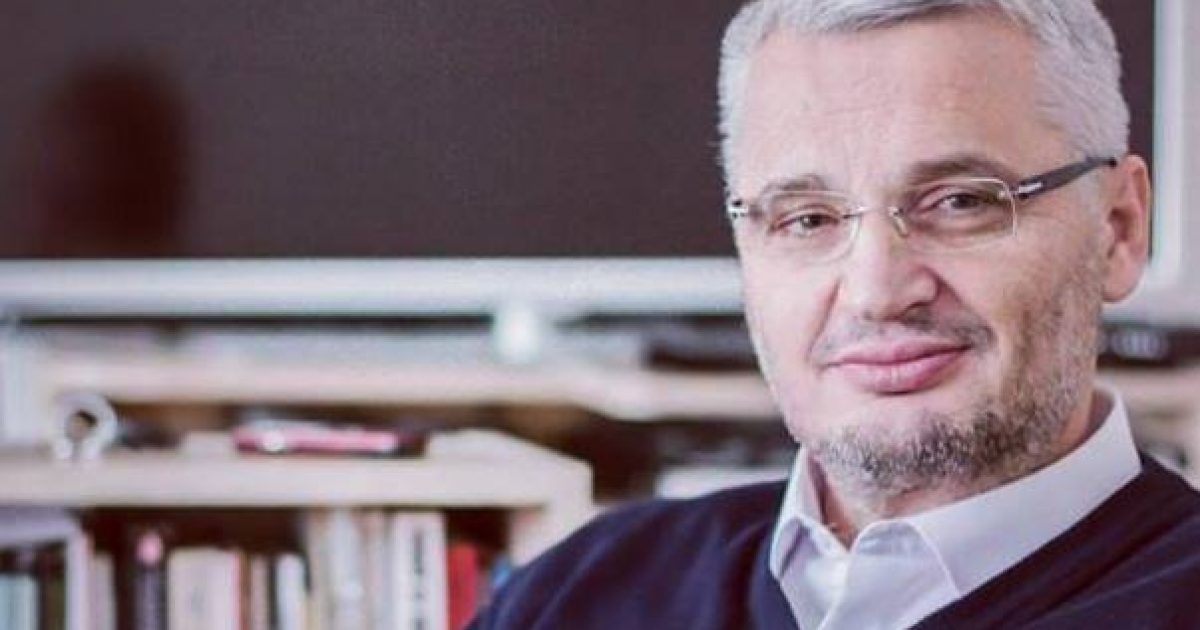Sounds like we're talking about a gift.
When "Open Balkans" enthusiasts Rama and Vucic mention this gift they are giving to the peoples of the Balkans, we become confused.
Who are they giving it to?
Who gave it to you?
We become even more confused when Foreign Minister Rus Lavrov supports the "Serbian idea of the Open Balkans", sad that he did not have the opportunity to say this in Belgrade.
Given that the EU, US, NATO due to the Russian occupation of Ukraine are in a state of undeclared war with Russia, which also targets the Balkans, the statement of the senior US official "that the US is not against the Open Balkans", confuses almost all.
But the US is not an unconditional supporter of this idea.
So, if everyone except official Kosovo supports this idea, why does the Balkans still remain (un) open?
Does Serbia have a border with Albania or not?
Not recognizing the independence of Kosovo, she defends the idea that the border with Albania is exactly in Morina.
By recognizing an independent Kosovo, official Albania does not accept this idea.
So, the "Open Balkans" is a way for Serbia to bypass the condition of recognizing Kosovo to integrate into the EU.
If Kosovo, without regulating its relations with Serbia, without equal status, would accept the circulation of Serbia through Kosovo without any possibility of control, this would leave Kosovo without the opportunity to be protected from economic, social and political pressure, formal and informal from its northern neighbor.
Serbia would behave as on its own soil and Kosovo would have no instruments to prevent this.
Free movement, for a country which according to public statements has 48 temporary and 12 permanent bases, military (and gendarmerie) around the border with Kosovo, makes very problematic the security not only of Kosovo, given that in Kosovo are stationed troops of many NATO member countries.
So, if it were not for Kosovo, everything would be easier for the creators, sellers and sellers of this idea which sounds beautiful to all those who were not raised and educated in the Balkans.
But Kosovo is a fact and Escobar's statement is support for this project if Serbia recognizes Kosovo as an equal.
It is an invitation for Serbia to recognize Kosovo and align with the West.
Criticisms or ironic comments on Kosovo's stance also come from Albanians with high political positions and responsibilities in Albania, Montenegro and Macedonia.
The Albanian packaging and promotion of this idea is creating confusion.
Who benefits, is the traditional Balkan question?
Will the neighbor's cow die?
So why is the Balkans still unopened?
As Murphy would say, if something is happening, it could not have happened.
At the heart of historical / political debates are in fact attempts to change the past.
And what if we change the past, by consensus?
While insisting on the term "Open Balkans", despite the idea of an open and borderless Europe, one thing is certain: The Balkans are not yet open.
The easiest way to open the Balkans is EU integration.
But European politics seems to fear the effect of tied vessels.
Will the Balkans automatically become Europe, or will Europe become the Balkans if the Balkans are accepted as they are in the EU?
It is certain that on the European train, the peoples and countries of the Balkans must consider baggage control.
Especially the historical and geopolitical ones.
Can the past be changed?
Maybe, if the political class and the intellectual elite change the interpretation of the past,
but there is no answer why they have not done it yet?
The EU has serious reservations about some countries, especially Turkey and Serbia.
While Turkey's path to Europe seems much more complicated and does not depend solely on its political will, Serbia seems to be able to choose.
Part of it will be Europe while the other part will be itself, so Russia.
The problem lies in the fact that the interpretation of the past is the fundamental obstacle which stops the construction of new relations in the region and consequently its opening.
Viewed from a geopolitical angle, Serbia has remained bad and is dancing on the tightrope of EU relations with Russia.
The Serbian president is also doing "pirouettes".
It is spinning so fast around its own words that Western politics is failing to distinguish even its forms.
The dizziness has taken on a regional character, and in this political ballet, Albanians are looking happier.
Rama's enthusiasm with the Serbian president is going viral!
This enthusiasm is spreading at the same time on the wings of the Albanian black eagle, as well as on those of the Serbian white eagle.
Edi Rama only in relation to the opposition, is the stick.
Even with Kosovo.
Maybe in relation to Serbia it is only… carrots!
